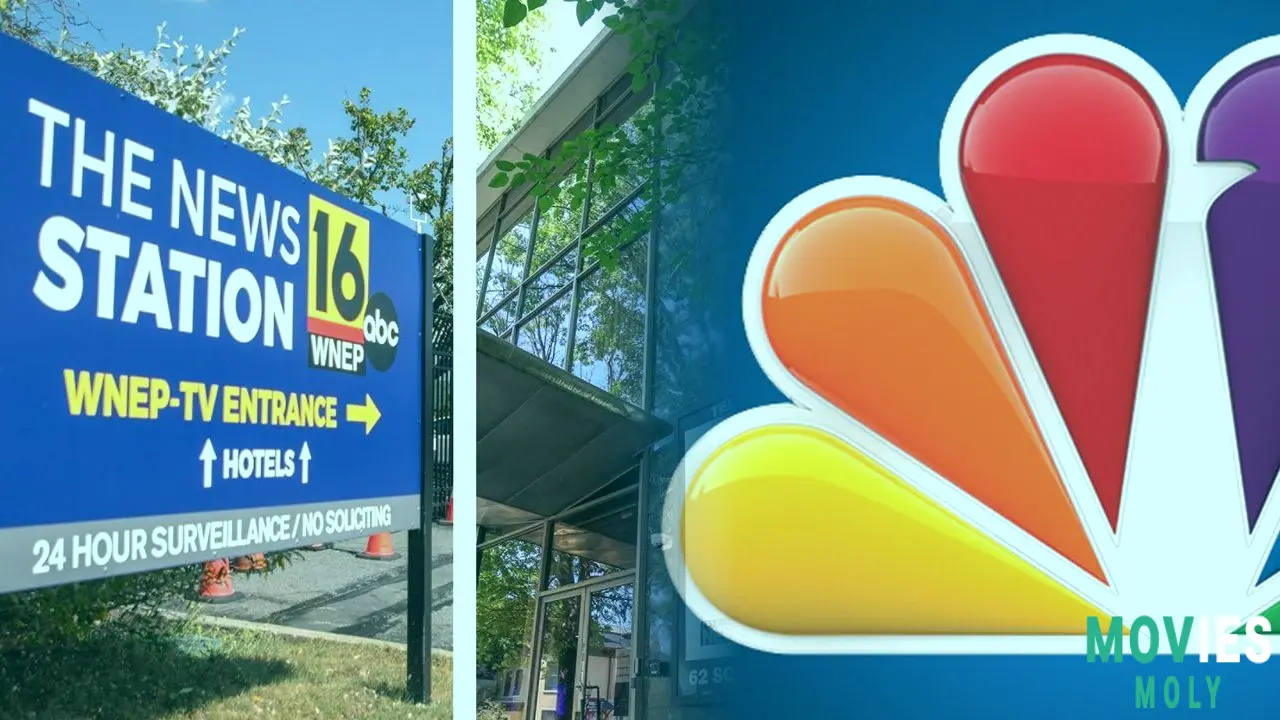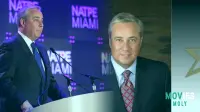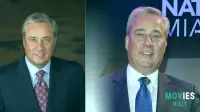Get ready for a massive shake-up in local TV! Nexstar's huge $6.2 billion bid to acquire Tegna is heading for a crucial shareholder vote, but regulators and lawmakers have some big questions that could decide the future of your favorite local stations.
TL;DR:
- Tegna shareholders are set to vote on November 18, 2025, on Nexstar's proposed $6.2 billion acquisition.
- This mega-merger, if approved, would cement Nexstar as the undisputed king of local TV, but it faces intense scrutiny from the FCC and DOJ over national ownership caps.
- Lawmakers and media veterans are raising serious concerns about potential "news deserts" and the impact on diverse local journalism.
Hey broadcast fans, buckle up! Nexstar Media Group, already a titan in the local television landscape, is looking to become an even bigger powerhouse with its proposed $6.2 billion acquisition of Tegna Inc. This isn't just another corporate maneuver; it's a move that could significantly reshape how you get your news, weather, and community stories from local ABC, CBS, FOX, and NBC affiliates across the country. The deal, first announced back in August, is now approaching a critical juncture: a shareholder vote that could set the wheels in motion for a truly transformative shift in the industry.
The Pivotal Shareholder Vote Approaches for Tegna's Future

Mark your calendars (or better yet, tell your financial advisors to do it)! Tegna Inc. shareholders are slated to convene virtually on November 18, 2025, at 9 a.m. Eastern Time. Their mission? To deliberate and cast their votes on this monumental merger agreement. If the shareholders give their blessing, Nexstar is poised to absorb Tegna's substantial portfolio of 64 local television stations spread across 51 markets. This would be a huge addition to Nexstar’s existing empire of more than 200 stations in 116 markets, solidifying its status as the preeminent owner of local TV outlets in the United States.
We're talking about an expansion that would push Nexstar's footprint into key media hubs like Atlanta, Phoenix, Seattle, and Minneapolis. The idea? To streamline content distribution, find operational efficiencies, and ultimately, fortify the combined entity's financial resilience in a market increasingly dominated by digital streaming and big tech platforms.
Why Nexstar is Pushing for this Gigantic Media Consolidation
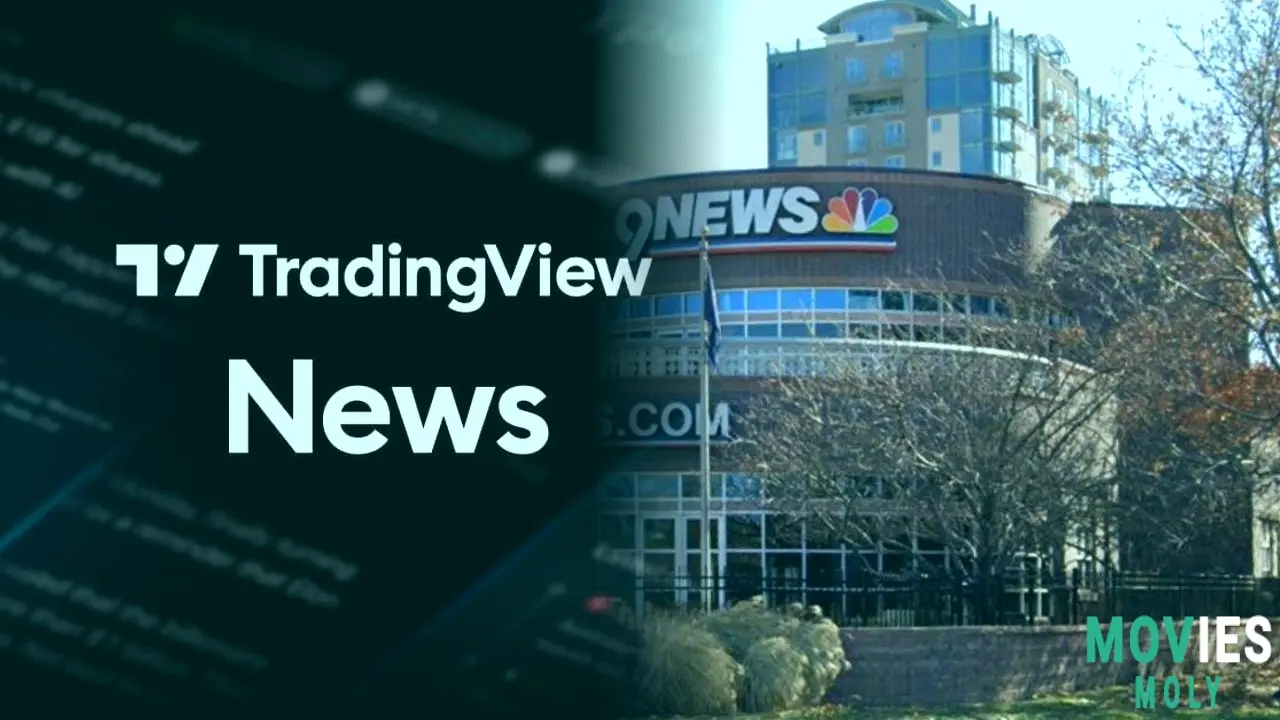
So, why is Nexstar, led by its founder and CEO Perry Sook, so keen on this massive expansion? It boils down to scale and survival in a rapidly evolving media world. Traditional broadcasters are grappling with immense pressure from the rise of streaming services and fluctuating advertising revenues. Nexstar sees this acquisition as a strategic play to not just survive, but thrive.
Analysts project that combining these two giants could unlock approximately $300 million in annual cost savings through revenue synergies and reduced expenses. This isn't just about saving money; it's about investing in a more robust local media ecosystem. With Tegna's assets, Nexstar would command stations in nine of the top 10 U.S. markets and 41 of the top 50. This vast network, they argue, would be better equipped to deliver hyper-localized programming, from essential news and weather updates to emergency alerts and cultural events, all while maintaining the trusted local voices communities rely on.
Nexstar also believes this merger will accelerate investments in digital offerings like mobile apps and on-demand content, crucial tools for recapturing audiences migrating to cord-cutting services. Their existing stakes in ventures like The CW Network and NewsNation would also benefit from Tegna’s established digital infrastructure and audience engagement tools. As Perry Sook himself puts it, "The only way local journalism can survive is to scale."
Navigating the Treacherous Regulatory Landscape of Broadcast Ownership
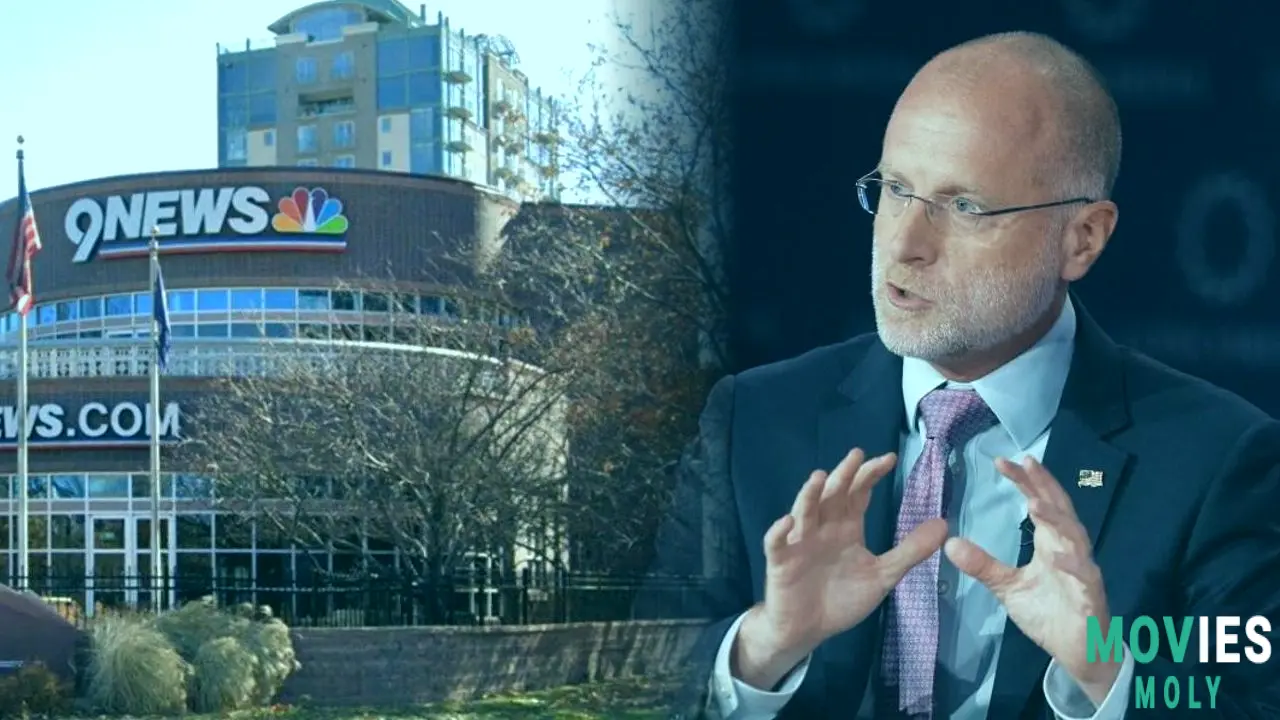
Now, here's where things get interesting, and a little complicated. Even with a shareholder vote, this deal is far from a done deal. It needs the green light from powerful regulatory bodies, specifically the Federal Communications Commission (FCC) and the U.S. Department of Justice (DOJ). And they've got some major hurdles to clear.
The biggest sticking point is the FCC's long-standing national broadcast ownership cap, which limits any single company from owning TV stations that reach more than 39% of the national viewing audience. Critics contend that this merger would push Nexstar well beyond that limit, potentially reaching over 80% if the UHF discount (which previously gave UHF stations less weight in audience calculations) is disregarded.
The DOJ has already shown it's taking a close look. On October 30, 2025, the parties received a "Second Request" for additional information and documentary material from the DOJ, signaling deep antitrust concerns. This request automatically extends the waiting period for approval.
"The only way local journalism can survive is to scale."
— Perry Sook, Nexstar CEO"My whole dilemma over the whole thing is major corporation ownership has all but destroyed local community service."
— David DeCosmo, Former WYOU BroadcasterThe FCC itself is divided on how to handle these ownership rules. Chairman Brendan Carr believes the FCC has the authority to unilaterally raise or eliminate the cap, viewing it as an outdated rule from the 1996 Telecom Act, an era before social media, iPhones, and streaming dominated our lives. He argues that modernizing these rules is crucial for broadcasters to compete with unregulated tech giants. However, Commissioner Anna Gomez, a Democrat, strongly disagrees, asserting that "only Congress can raise the cap." She also voices concerns that deregulation could lead to "news deserts" and a loss of public media in local communities.
This internal debate within the FCC, coupled with the DOJ's scrutiny, means the path to approval is "fraught with hurdles," and the deal isn't expected to finalize until the second half of 2026, at the earliest.
Local Communities Speak Out: The Concerns of Consolidation

So, what does this all mean for the everyday viewer and the journalists on the ground? Let's look at Northeast Pennsylvania for a real-world example. Nexstar’s own story began in Scranton in 1996 with its first purchase, WYOU (CBS). They later acquired WBRE (NBC) and, due to old FCC rules, even sold WNEP (ABC) to Tegna in 2019. But now, with a federal court having struck down the multi-station ownership prohibition in July, Nexstar CEO Perry Sook admits he's open to "exploring that opportunity" to bring WNEP back under the Nexstar umbrella after the Tegna merger.
This potential outcome, where one company could own multiple major network affiliates in a single market, has raised alarms among local media veterans. Carl Abraham, a retired WNEP News Director, speculates that if such a scenario unfolds, it "would mean consolidation... job losses." David DeCosmo, a longtime broadcaster for WYOU, paints a more stark picture: "My whole dilemma over the whole thing is major corporation ownership has all but destroyed local community service." He points to the increasing trend of "one-man band" reporters who now handle both reporting and camerawork, potentially impacting the depth and quality of local news.
Colorado lawmakers, Senator Michael Bennet and Representative Joe Neguse, have directly implored the FCC to reject the merger. They argue it would cause "devastating consequences for our home state of Colorado," where Nexstar already has an extensive presence and Tegna owns high-rated stations like KUSA (NBC affiliate in Denver). They call the proposed merger a "clear violation of the national broadcast ownership cap, and therefore the law," fearing it would lead to "anticompetitive consolidation" and reduce access to diverse viewpoints.
While Nexstar champions a "local, local, local" philosophy, and current journalists like WBRE's Andy Mehalshick praise Nexstar's commitment to local news, the concerns about job security, diverse perspectives, and community service remain at the forefront of the debate.
The Broader Debate: Modernizing Media Rules for the 21st Century
The Nexstar-Tegna merger isn't just about two companies; it's a microcosm of a much larger national debate. Should decades-old media ownership rules, crafted in a vastly different technological era, be updated or even abolished to allow traditional broadcasters to better compete with today's tech giants? Advocates for deregulation, including the National Association of Broadcasters, argue that these "outdated restrictions hinder investment, innovation and the ability for local radio and television broadcasters to serve communities." They believe freeing broadcasters to scale up is essential to keep local journalism vital.
Conversely, opponents argue that removing these caps would lead to too much media concentration, stifling competition, reducing the diversity of voices, and ultimately undermining local journalism's ability to hold power accountable and serve community needs. They fear a future where a handful of corporations control the vast majority of local information, potentially leading to homogenized content and a diminished public square.
What's Next for Local Television's Potential Transformation?The broadcasting world is certainly on edge. While Tegna shareholders will soon cast their votes, the ultimate fate of this monumental $6.2 billion merger rests in the hands of the FCC and DOJ. Their decisions will not only determine the future of Nexstar and Tegna but could also set a precedent for media consolidation across the entire local television landscape for years to come.
Will the push for scale truly empower stations to innovate and better serve their communities, as Nexstar argues? Or will it lead to the feared "news deserts" and a less diverse media environment, as critics warn? We'll be watching closely as this high-stakes drama continues to unfold.
Sources:
- Cord Cutters News: Nexstar’s Ambitious TV Empire Expansion Gets a Tegna Shareholder Vote to Buy Its ABC, CBS, FOX, & NBC Locals
- The Citizens' Voice: Nexstar set to grow larger if federal regulators approve proposed acquisition of Tegna
- TheFly: Tegna, Nexstar merger expected to be completed by 2H26
- TheDesk.net: Colorado lawmakers voice opposition to Nexstar-TEGNA deal
- RBR-TVBR: FCC Head Reveals Nexstar’s TEGNA Buy Bid Awaits Filing
- Insideradio.com: FCC Chair Says Agency Can Unilaterally Raise Ownership Caps
- Law360: Dems Say $6.2B Nexstar-Tegna Deal Breaches Ownership Cap
- Reuters: Tegna gets US Justice Department request for more information on Nexstar deal
- The Hill: The FCC should modernize media ownership rules

